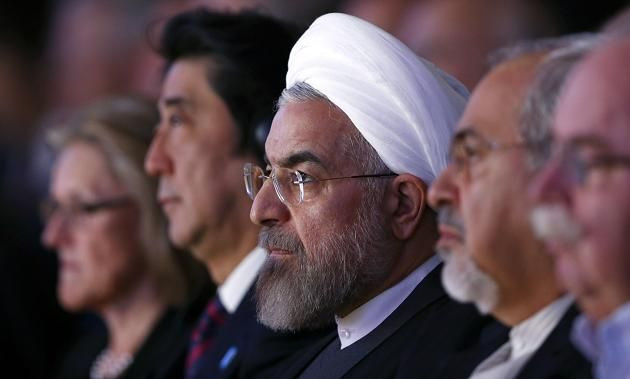The Iranian Billionaire Involved In The 2011 Embezzlement Scandal Was Executed Saturday, Here's Why

Mahafarid Amir Khosravi, also known as Amir Mansour Arya, was an Iranian billionaire and rumored political ally of Iran’s former president Mahmoud Ahmadinejad. He was executed Saturday for his key role in Iran’s 2011 $2.6 billion bank embezzlement scandal, and for being convicted of money laundering and bribery.
According to Tehran’s public prosecutor’s office, Khosravi was hanged at Tehran's Evin Prison. "I had not been informed about execution of my client," Khosravi’s lawyer, Gholam Ali Riahi told khabaronline.ir. "All the assets of my client are at the disposal of the prosecutor's office."
Khosravi has been executed. Was arrested Sept 2011 as one of main figures behind Iran's largest embezzlement scheme. pic.twitter.com/DmsQV7fEHM
— Arash Karami (@thekarami) May 24, 2014The underlying reasons for Khosravi’s hanging is two-fold: he is being made an example of because of his close ties to Ahmedinjad and he broke Sharia law.
When the scandal broke, it was discovered that Ahmadinejad’s chief adviser, Esfandiar Rahim Mashaei, had close ties to Khosravi and the two came from the same town, according to CNN. When President Hassan Rouhani took power in August 2013, part of his platform was to reduce financial corruption in Iran, which was rampant during Ahmadinejad’s regime (most of the major Iranian banks were involved in the embezzlement). The execution could possibly be a power play by Rouhani to highlight the differences between him and his predecessor.
Whether or not it boosted Rouhani’s image, it cannot be denied that Khosravi committed a crime. In 2011, Khosravi was charged with forging credit documents for Aria Investment Development, the key player in the scandal, at some of Iran’s biggest banks to obtain funding. Khosravi, along with three others involved in the company, bribed bank managers. He was sentenced to death in July 2012.
Embezzlement in Iran is punished so severely because it involves breaking Islamic banking law. After the 1979 Revolution in Iran, all Iranian banks were forced to follow Sharia banking procedures, under which riba, loosely translated as usury, is forbidden. That is, to loan money that would result in unfairly obtained gains. While there are certain exceptions depending on interpretation, bribery is also forbidden.
Khosravi was worth more than a billion dollars as the head of Aria Investment Development. This was an umbrella company for more than 25 companies all reportedly purchased with embezzled bank money. Of his many business endeavors, Khosravi owned a mineral water company, a steel company (that was predicted to produce at least 3.2 million tons of steel in 2010), a soccer team and and also dealt with meat imports from Brazil.
Iran is infamous for their numerous executions, most of which are carried out by hanging. In 2013 alone, the country hanged 665 people, according to numbers released by the Iran Human Rights Documentation Center. If you’re counting, that comes out to a little more than 54 people a month.
© Copyright IBTimes 2024. All rights reserved.





















